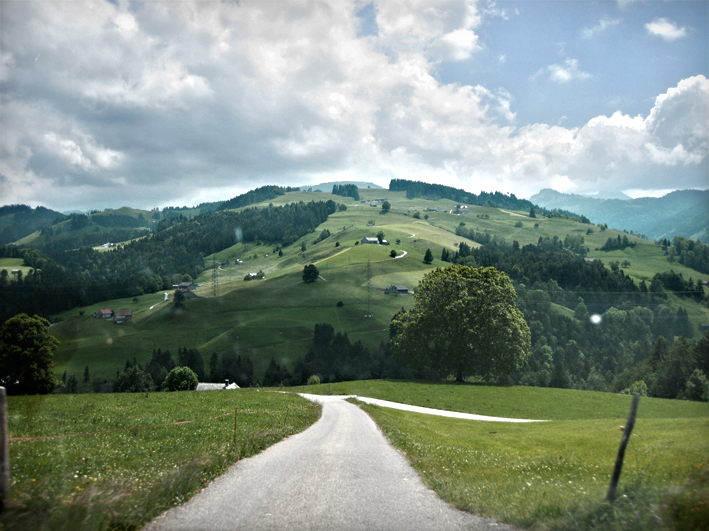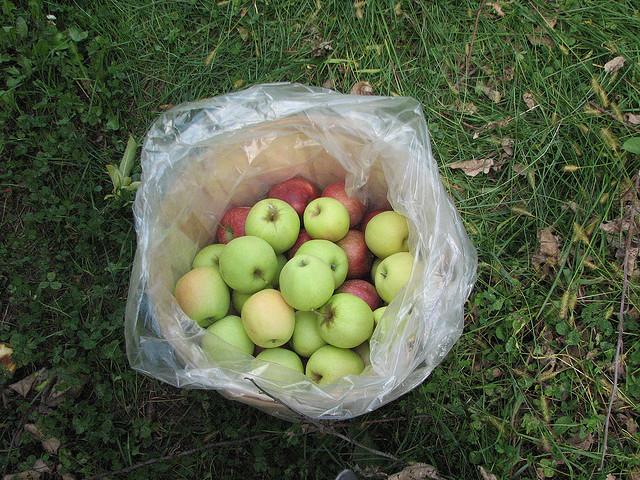This month, we’re pleased to offer seven new poems by several returning and new contributors.
All posts tagged: 2014
Dutch Joe
Land sakes is what we’re always exclaiming, because land is all we’re good for, all the sakes there are or ever will be. Each of us, fifty or so strong, has left a country crowded with kin or else lorded over, every inch of the land spoken for, down to the last hop of hare or squawk of fowl.
Ask a Local: Jane Satterfield, Baltimore, MD
With JANE SATTERFIELD

Your name: Jane Satterfield
Current city: Baltimore, MD
How long have you lived here? Except for years in Iowa and England, I’ve lived in Maryland most of my life. Though I’ve lived in Charm City for 23 years, I’m a bit of a homebody so my imagination runs backward to the places I lived growing up: the sprawling farmland of Frederick county that runs along the Catoctin Mountain chain; the sprawl of suburban tract land along the D.C. Beltway.
The Hill

You are that boy. The boy I met in Switzerland while herding my siblings up the long, steep hill to the closest school cafeteria for our free lunch.
It took me exactly two hours. Two hours for most Swiss children to go home to a hot lunch and a motherly kiss. Two hours for non-Swiss me to make my way across town, pick up my brother and sisters at their school and coax them all up that hill, to get them fed, then back down to drop them off and then catch a city bus to my own school, and my breath, if I have money that day.
Review: The Afterlife of Stars
Book by JOSEPH KERTES
Reviewed by
How to depict human suffering, especially that of children? This question is at the heart of Joseph Kertes’s haunting novel, The Afterlife of Stars, which tells the story of a family fleeing the 1956 Soviet invasion of Hungary to crush the anti-Communist revolution from the point of view of young Robert Beck, 9.8 years old but “born old,” as his Parisian aunt tells him when she meets him for the first time. Kertes, like Robert, escaped with his family across Europe and eventually settled in Canada, though he was only five at the time. Kertes, whose previous novel, Gratitude, won both the National (U.S.) and Canadian Jewish Book Awards, might have written a memoir, but writing a novel allowed him to tell this story in a lyric, dreamlike prose. This may have been the best way for this author to convey in a literary, adult voice such an early trauma.
Erik Hougen: to Dissolve Place
Artist: ERIK HOUGEN
Curated by: JEFF BERGMAN

In reference to photography, Roland Barthes wrote that its unique position among art was that it referred directly to something “that has been.” Erik Hougen’s paintings hint at that premise; they offer places both familiar and alien, which forces the part of our brain that codifies and organizes images to guess where and when. This dialogue, or rather confusion, between viewer and image is exactly what the artist is working towards. Hougen invites us to a location and time that may not exist. The mind attempts to classify the exact place, but ends up submitting to a notion of place.
Eating Apples

Under our mother’s dictatorship, we had one liberty. Each market day, she bought a crate of Golden Delicious apples and tipped the Swiss vendor to lug it up the three steep flights of stairs that led to our immigrant’s cramped apartment. The full crate barely fit on the bottom shelf of our small pantry, where it sat for us all month. These apples were our only snack, but we could eat of them without restriction.
Such Great Heights
I read Peter Matthiessen’s The Snow Leopard in Ohio anticipating a trip to Kathmandu, via Abu Dhabi, where I arrived one bright day at the end of October. In the book, Matthiessen descends to grey Kathmandu after two months climbing the pristine crags of the Himalayas. In the city, the planar snows can appear only as an afterimage, a ghostly trick of the eyes. Matthiessen has not seen the elusive snow leopard he hoped to find, which represented Zen transcendence. He wanted to reach that state, but discovers that, being human, he can only approximate it. That, he decides, is enough. Returned to his worldly self, nature has explained itself and him. Where the snow lives, the Sanskrit himalaya, is eternal. He, by comparison, is nothing.
Trespassing in Leechburg

We drive on a gray day in October, a scenic four-hour drive from my new home in Baltimore to my old home in Leechburg, a small steel town in the rolling hills of Western Pennsylvania, where I lived from ages 8 through 15—the longest stretch of childhood I spent in one location. Though it’s a place I’ve often gone back to in my fiction, I haven’t returned in person in over 15 years. The trip is reconnaissance and romance: scene gathering for a novel and a chance to explore my memory with M.
Review: Wolf in White Van
Book by JOHN DARNIELLE
Reviewed by

In the early 1990s, John Darnielle set “some of his poetry to music, using a guitar he’d gotten for a few bucks at a nearby strip mall music store. His idea at the time was that eventually his day job would be ‘poet.’ …Young men have all kinds of crazy ideas about what they’re going to end up doing for a living,” says his website bio. He went on to found the popular folk-rock band, The Mountain Goats. Its fans are drawn to Darnielle’s simple instrumentals and powerful lyrics.His song “You Were Cool” sums up his approach and the band’s appeal: “This is a song with the same four chords / I use most of the time / when I’ve got something on my mind / And I don’t want to squander the moment / Trying to come up with a better way / To say what I want to say.”
Now, Darnielle has fulfilled his day-job fantasy in another way—he has written a National Book Award-nominated debut novel, Wolf in White Van. Fans of Darnielle’s music will not be disappointed. Darnielle writes in the poetic, playful tangents characteristic of his lyrics, often grasping at a passing image or emotion and describing it from every angle before rejoining the unfolding story.





